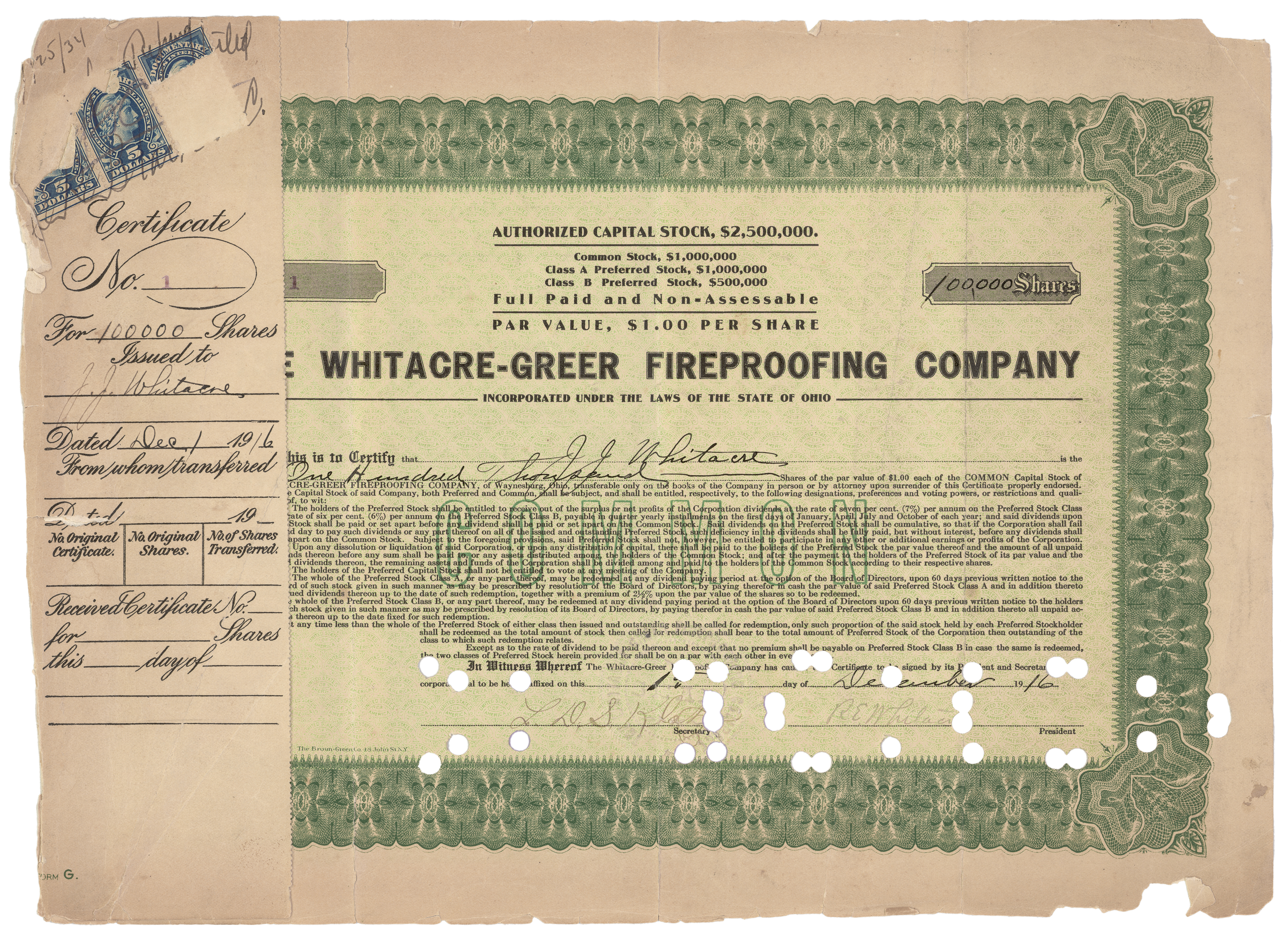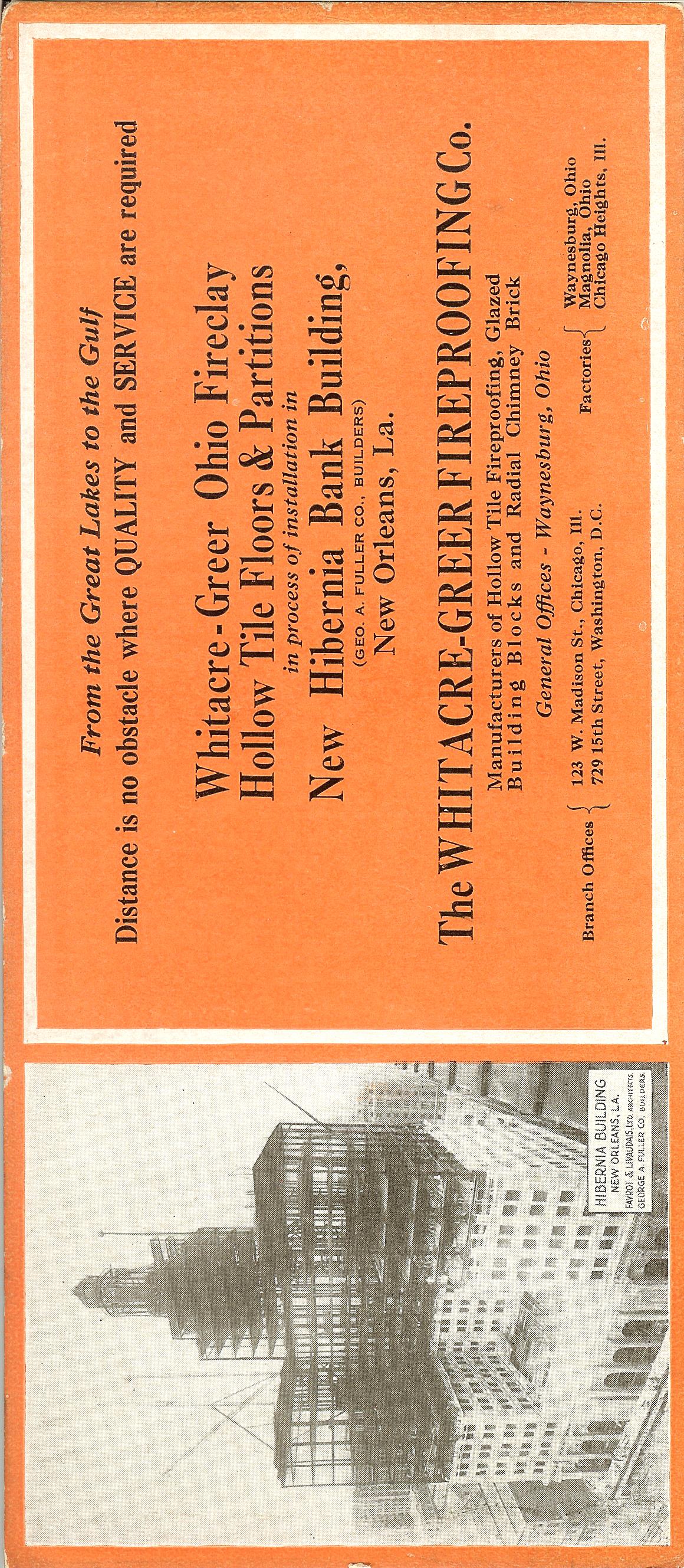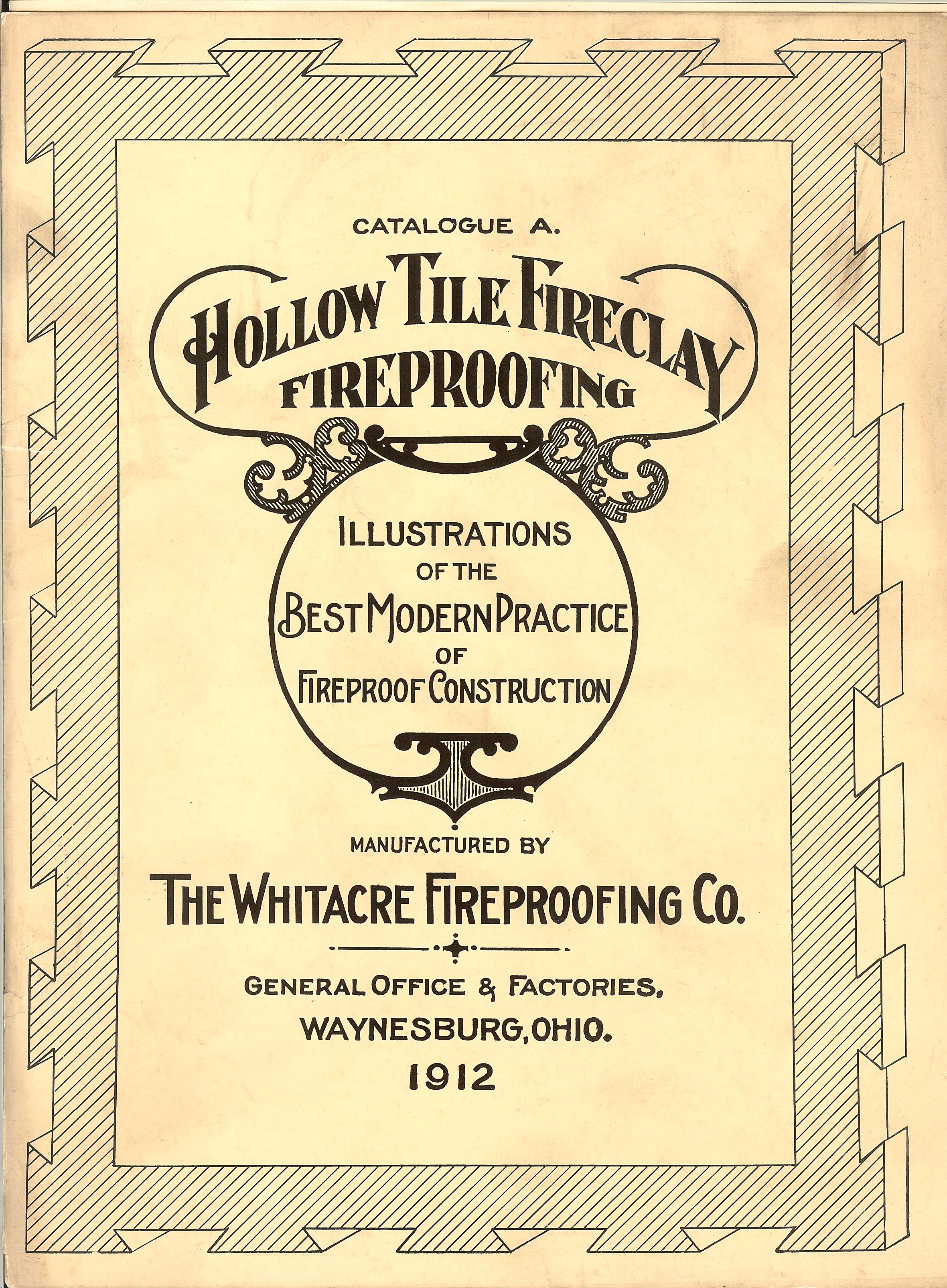Hollow tile known as fireproofing continued to be the material of choice for large major buildings such as the Merchandise Mart in Chicago and the Cleveland Hotel and Union Commerce Building in Cleveland. The economy and building were strong and the Whitacre Fireproofing Company grew and prospered. The Waynesburg factory was enlarged to 50 kilns, named Plants 1 and 2, which was then the largest factory of this type in the country.
The Whitacre Engineering Company was formed to provide engineering and detail work for complex fireproofing construction required to provide tile cladding for the steel work, as well as floors and partitions for very large multistoried buildings.
In 1914, the company purchased the Pittsburg and Malvern Paving Brick Company in Malvern, Ohio, a 33-kiln factory, which was known as Plant 3. This factory was converted to the manufacture of fireproofing tile. The Malvern plant mined its clay from a surface mine located in a bog on the Caldwell farm. A narrow gauge railroad was build from the mine to the plant. An underground mine was also started to provide additional coal and clay for the fireproofing products.
Plant 4 was a fireproofing plant acquired in Chicago Heights, Illinois, to better serve the large and growing Chicago market. This plant featured a continuous kiln. Clay and shale were mined with a shale planer from an adjoining hill.
In 1916, the Whitacre Fireproofing Company merged with the Greer-Beatty Clay Company, which had an 18-kiln factory south of Magnolia, Ohio, afterwards known as Plant 5. This plant was on the east side of Route 542 across the street from the original JJ Whitacre plant, which had been sold to the National Fireproofing Company, headquartered in Pittsburgh, Pennsylvania. Greer-Beatty owned about 1,500 acres of farmland adjoining its plant. Both the Whitacre and Greer-Beatty stockholders had their holdings appraised as high as practical and stock in the merged company, now the Whitacre-Greer Fireproofing Company, was issued accordingly. JJ received enough common stock to control the company, in addition to a substantial amount of preferred stock. The common stockholders had the vote and controlled the board of directors. The Greer-Beatty factory at Magnolia was also converted to fireproofing tile production.





